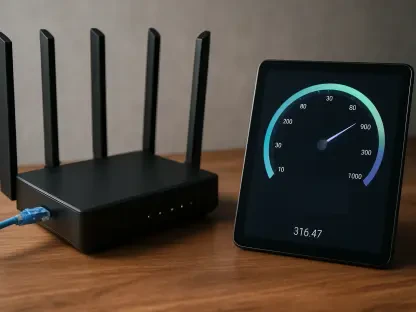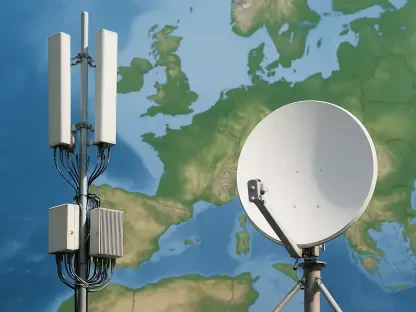In a surprising turn of events, Nigeria, often seen as one of Africa’s digital powerhouses, is witnessing a subtle yet concerning drop in its internet user base, raising questions about the factors behind this shift. Recent data from the Nigerian Communications Commission (NCC) reveals that active internet subscriptions across mobile, fixed, and VoIP networks have dipped by 0.3%, falling to 141.1 million in June from 141.5 million in May. This decline, though marginal, marks a notable deviation from the consistent growth trajectory the country has experienced in recent years. Alongside this, mobile subscriptions have also decreased to 171.5 million from 172.4 million in the same period. Such statistics paint a complex picture of a nation grappling with connectivity challenges despite its reputation as a burgeoning tech hub. This unexpected downturn prompts a deeper exploration into the dynamics of the telecom sector and what it means for digital inclusion in Nigeria.
Shifting Market Dynamics Among Telecom Giants
A closer look at the telecom landscape reveals uneven performance among Nigeria’s major operators as a key contributor to the overall decline in internet users. MTN, the market leader with a 52.03% share, experienced a significant loss of 1 million subscribers, dropping from 90.2 million to 89.2 million in June. Similarly, 9mobile, now rebranded as T2, saw a reduction of 236,238 subscribers, leaving it with a mere 2.4 million and a market share of just 1.42%. On the other hand, competitors like Airtel and Globacom managed to buck the trend, with Airtel gaining 36,316 subscribers to reach 58.9 million and Globacom adding 263,028 to hit 20.8 million. Despite these gains, the combined losses from MTN and 9mobile outweighed the increases, contributing to the net reduction in active subscriptions. This disparity highlights a competitive market where smaller players struggle to retain users, while larger operators face challenges in maintaining their dominance amid fluctuating consumer behavior.
Rising Data Usage Amidst Shrinking Access
Interestingly, while the number of active internet users has declined, data consumption in Nigeria has reached a new peak, reflecting a growing dependency on digital services among those still connected. In June, total data usage rose slightly to 1.044 million terabytes from 1.043 million in May, marking the highest monthly record in over two years. This suggests that even as subscriptions dwindle, existing users are engaging more intensively with online platforms, possibly driven by the increasing necessity of internet-based services for work, education, and entertainment. Additionally, teledensity, which measures active telephone connections per 100 inhabitants, slipped to 79.22% from 79.65% in the same period, indicating a broader contraction in connectivity access. As mobile network operators continue to dominate with 140.6 million subscriptions compared to just 528,633 from internet service providers, addressing this dual trend of declining users and rising demand has emerged as a critical focus for stakeholders aiming to sustain Nigeria’s digital growth.









